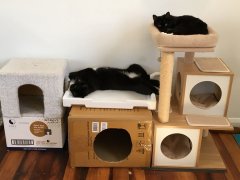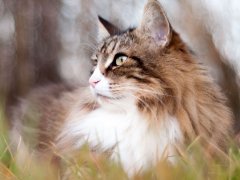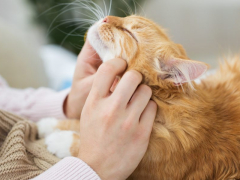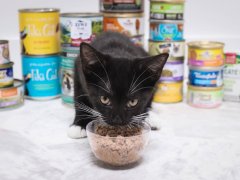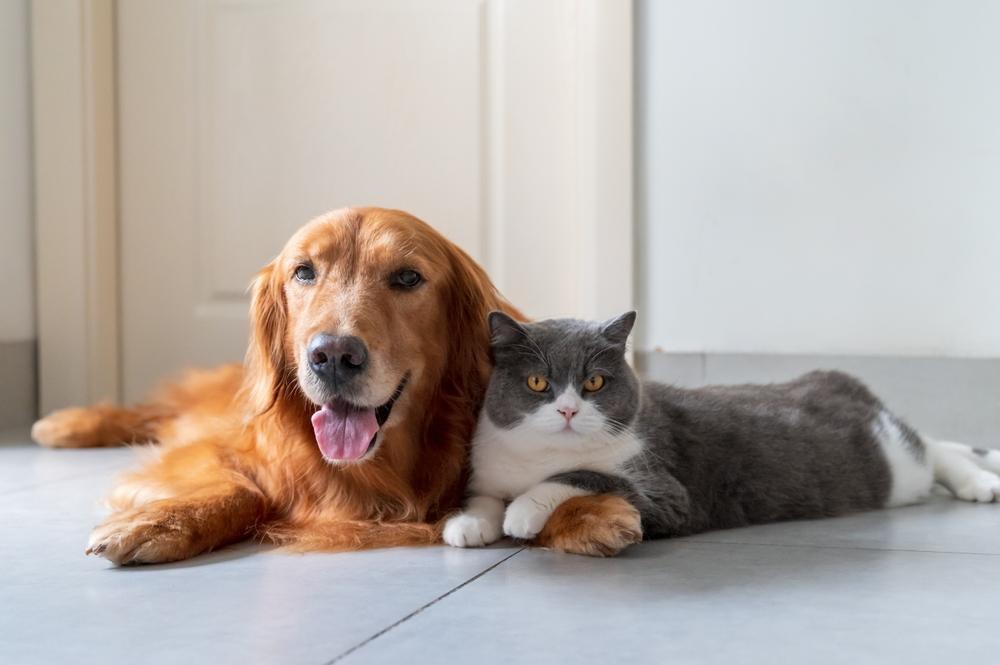
If your cat companion seems more dog than cat in their behavior, traits, likes, and dislikes, you might be a little confused…
After all, there are cat people and dog people, but why do cats sometimes act like dogs?
Whether your cat enjoys playing fetch with toys, likes a walk on a leash, has perfect recall, or is perfectly trained in a while repertoire of tricks, we’ve got the answers for you.
Some behavior that is considered stereotypically ‘dog’ is actually common in cats too, and cats can also pick up on more canine behaviors if they live with dogs.
Cats are very intelligent and trainable, and many are also social creatures, meaning that they enjoy spending time with you playing games and learning tricks.
If your cat’s behavior is unusual or causing a problem, you should contact your veterinarian or a qualified cat behaviorist.Key Takeaways
Why Does My Cat Act Like a Dog? Top 5 Reasons Why
1. Your Cats Lives With Dogs
If your cat lives with or has lived with dogs, you might notice that they pick up some of their canine habits as well as their cat-like behaviors. For instance, you might notice that they join the dog to greet you with a chorus of barking and meowing when you get up in the morning, or that they participate in ‘zoomies’ with the dog during a moment of excitement. They might even run for a ball or other toy because they see the dog doing it and want to join in.
Dogs are pack animals, and will often run around their home together, greeting their owners, playing, and looking for attention. Your cat will also enjoy being involved and interacting with you, and won’t want to miss out.
Not only does this mean that they’ll be watching out for moments when the dog gets your attention to try to muscle in (perhaps by jumping on your lap!), but you might find they try to follow you down the street for walkies too! It may almost seem at times that your cat is jealous of your dog, or trying to copy them.
2. They’ve Been Taught
Cats are quick learners, especially if there’s a reward like a tasty treat, a fuss, praise, or some of your undivided attention. If you provide your cat with positive reinforcement when they fetch a toy, come when called, or learn a new trick, they’ll learn to do it more often.
This willingness to learn also means that if you wanted to teach your cat to walk on a lead or walk at your heel, there’s a good chance that, with patience, they would learn just as a dog does. If you’re interested in whether cats or dogs are smarter, you can read more in our article Are Cats Smarter Than Dogs?
3. Your Cat Wants Attention
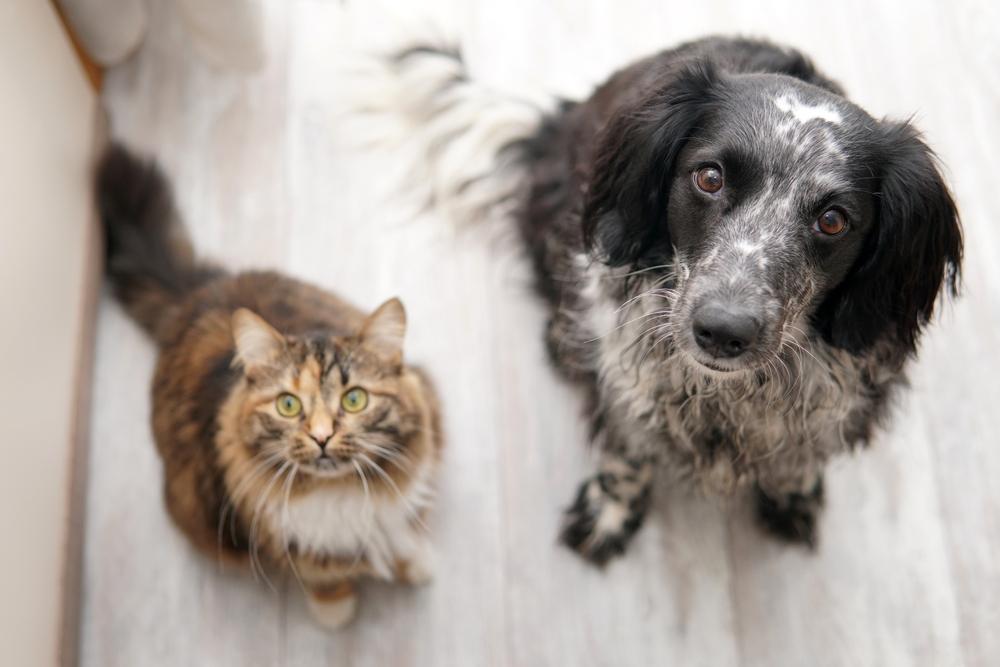
A cat’s behaviors that lead to a response from humans are often quickly repeated and reinforced.
Although cats can be independent, they’re usually very sociable with familiar humans and enjoy interaction and attention. So, if they learn that doing something a little bit quirky and dog-like makes you laugh and gets them some positive attention and love, they’ll keep doing it. It’s no surprise, then, that some cats play fetch, do tricks, or perform other doggy behaviors regularly.
4. It’s Their Breed
Certain cat breeds are more dog-like than others. If you have a Ragdoll cat, an Abyssinian, or a Turkish Angora, or if you favor the Maine Coon or Manx breed, you probably appreciate a combination of cat and dog-like traits and you might see some similarities between how your cat and dog act.
5. It’s Normal Cat Behavior Too
Some behavior is considered to be more common in dogs when actually it’s quite normal for cats too. There are some surprising similarities between these two species. When you think of dog-like behaviors you might think of them greeting each other by sniffing each other’s rear ends or humping, but cats can do these things too.
Cats are very reliant on scent and use it to mark their territory and communicate with each other, so when two cats meet, if there isn’t much tension or aggression, they will often sniff each other. Their scents give information about their age, sex, health, and neuter status, so it’s like an introduction!
Humping is often considered to be sexual behavior, but humping can also be associated with frustration or habit. Although it’s more well-known in dogs, cats can do it too.
How to Spot When Your Cat’s Behavior Could Indicate a Health Problem

Stress and anxiety in cats can present as behavioral change, such as becoming more clingy or attention-seeking.
If your cat sometimes acts like a dog, it’s not necessarily a problem. It could be something they’ve learned, a behavior you’ve encouraged, or it might just be normal for cats too. However, if your cat’s behavior has changed, or if they have other symptoms too such as altered appetite, thirst or toileting habits, there could be an underlying reason for their odd behavior.
The most common causes of feline behavior changes are stress and anxiety, which can be triggered by changes like new babies, building work, new cats, and house guests. If you notice any change in your cat’s behavior, it’s important to speak to your veterinarian. They will be able to check your cat’s health and even refer them to a veterinary behaviorist if required.
Frequently Asked Questions
Is it normal for a cat to act like a dog?
It can be absolutely normal for a cat’s behavior to seem more canine. This could be because you’ve reinforced that behavior, they’ve learned from a dog, or because the behavior is normal for cats too. However, if your cat’s behavior has changed in any way, it’s always best to get them checked by a vet.
What is it called when a cat acts like a dog?
There's no scientific term for a cat that acts like a dog, but the term 'puppy cat' is sometimes used.
Is it rare for a cat to play fetch?
Most cats don’t naturally or instinctively play fetch, that is, without seeing it first-hand from a dog or being taught the game by a human family member. Cats are very trainable, though, and many cats can learn to play fetch.
What breed of cat is most like a dog?
Maine Coon cats are acknowledged to be a very dog-like cat breed. Not only does their size help them seem more dog-like, but they are also highly intelligent, loyal, and loving, not to mention their unusual love of water! Ragdolls are particularly laid-back and cuddly, which is reminiscent of certain dog breeds. Other dog-like breeds include the Manx cat, Abyssinian, Siamese, and Turkish Angora.
What is alpha syndrome in cats?
Alpha syndrome in cats refers to cats who are naturally more dominant and higher in the hierarchy. These cats are usually quite commanding in their behavior and in charge of all household pets, which might make them seem more dog-like.

